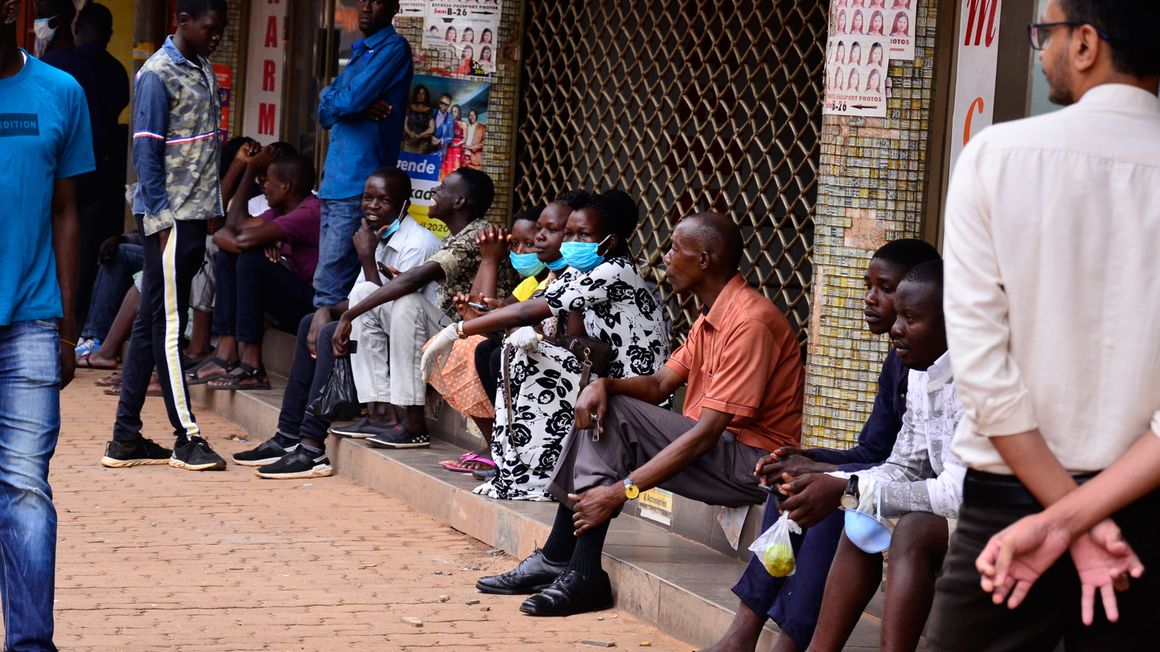Covid-19 lockdown and a struggling economy

Traders sit outside shopping arcades that were closed to mitigate the spread of coronavirus in March 2020. PHOTO / FILE
When Covid-19 first hit the world in late 2019, it was just a rumour in Uganda as it was in many parts of sub-Saharan Africa. We quickly dismissed it, calling it a Chinese problem. By then, the Chinese were dying in alarming numbers and the news that it was first manufactured, discovered or even reproduced in a Wuhan laboratory was a theory grounded in conspiracy as much as it was fronted as a weapon for mass destruction, a biological weapon of war, and of course we added our own Ugandan touch by discussing how Covid-19 was a ploy: an attempt by China to subdue the West. I call it purely Ugandan because we have been gifted with the ability to read between the lines even when they are blurred or even non-existent.
However, when the numbers slowly went up in our own country in the first half of 2020, there was tangible panic. It was justified because it was not only a pandemic unprecedented, but it was fatal and we were ill- prepared and equipped to contain it.
We had beaten cholera, worked around Ebola, but Covid-19 was special: it was asking us to refrain from our extremely lively socio-cultural experiences and also tasking us to change as a nation.
President Museveni after reading and confirming statistics on global deaths resolved to shut the country down. When the health ministry admitted to not being able to handle the crisis should it turn from bad to worse, we all shrugged it off as the government’s problem, but was it? When it became clear that the population was starving and many were losing jobs, worsening the unemployment within the economy, the challenge was thrown to the public.
The President asked for help, borrowing heavily and asking for donations in order to save the people. But who really was being saved? Was it the majority poor that would not afford the basics before the pandemics or those whose needs suddenly shot up during the pandemic in a cyclical showcase of greed to take even the little that was meant for the poor and vulnerable? The President became then the face championing the cause, instead of systems managing the different sectors that were crucial to the sustainability of the economy.
We saw his face when he came to update the country on its Covid-19 status, we saw him carry out mass mobilisations for funding, we even briefly saw him sympathise with those who had lost their loved ones. What many Ugandans did not see were functional systems behind him, nor did we see ministries come together to negotiate with the public and other stakeholders on the way forward.
Almost two years later, the education sector remains hugely destabilised, hospitals are yet to be equipped and the economy is in a pitiable state. Households continue to starve, the country remains in partial lockdown, and yet the President continues to presidentilize the economy. Is he working alone, can he work alone, should he work alone, or are the systems simply failing him?
As Uganda’s international debt deepens and Ugandans continue to despair, is lockdown relevant or is it another way of keeping the president’s seemingly patriotic demeanour on the consciousness of a frail and failing economy?
Itah Patience Mbethki, MISR – Uganda


